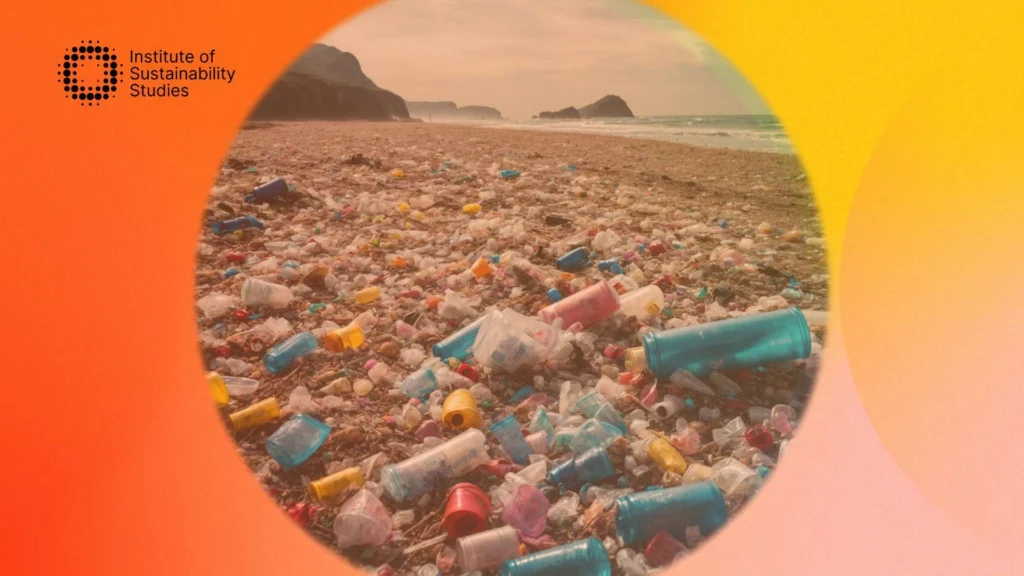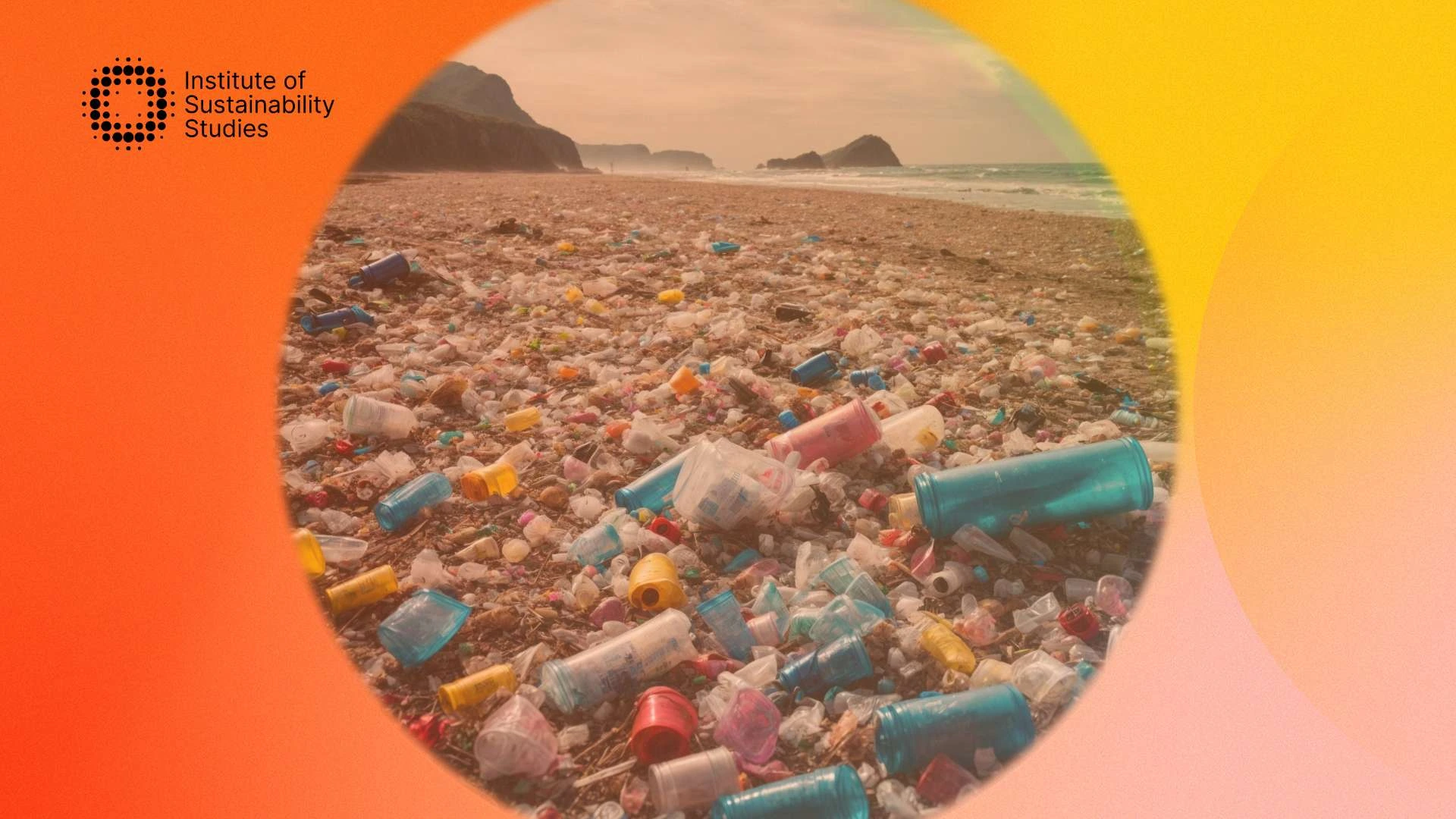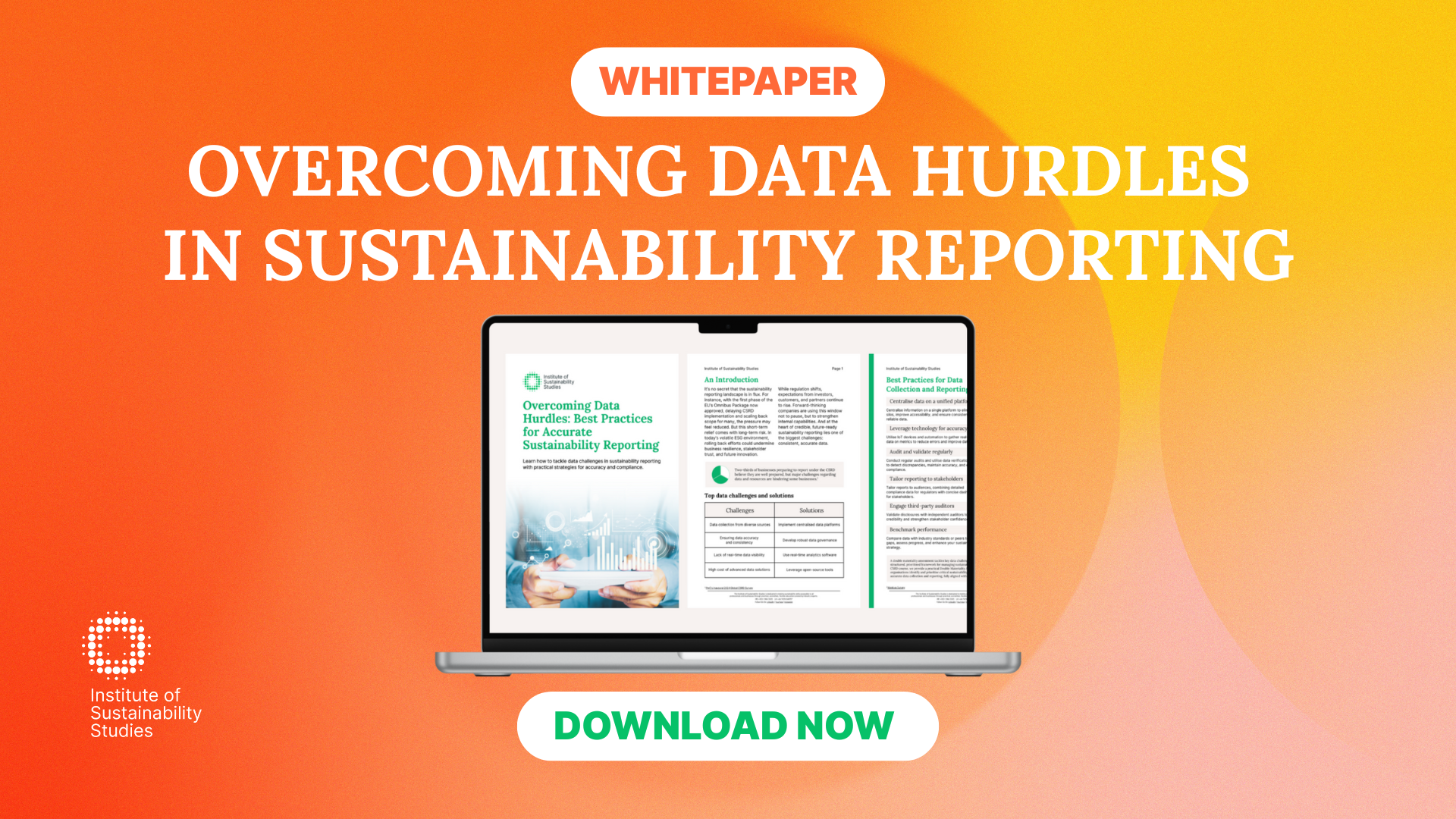A new report in The Lancet has placed plastics and human health firmly in the spotlight as a global public health crisis, estimating that plastic-related health impacts cost more than $1.5 trillion annually. The findings link exposure to plastics across the human lifespan, from infancy to old age, with serious health risks and call for urgent regulatory action.
For organisations, the report is a stark reminder that effective business sustainability strategies must address climate and biodiversity risks, but also the complex health and economic impacts of materials used in products, packaging, and supply chains. Keep reading as we unpack the findings of this report and what they mean.
Address plastics and human health risks with actionable, business-ready sustainability training
A surge in plastic production — and its consequences
The report identifies the rapid rise in plastic production as the principal driver of the crisis. Global output has grown from just 2 million tonnes in 1950 to 475 million tonnes in 2022, with projections of 1,200 million tonnes by 2060 if no new regulations are implemented.
Plastic waste has surged alongside production. To put that in perspective, more than 8 billion tonnes of plastic waste have been generated since 1950, with half produced in just the past decade. Yet less than 10 percent of global plastic waste is recycled, far behind other materials such as paper, glass, steel, and aluminium. Recycling is hindered by the chemical complexity of plastics and the presence of hazardous additives.
Plastics and human health: How exposure is affecting our bodies
One of the report’s most troubling findings is the growing evidence linking plastics and human health impacts, with microplastics and nanoplastics entering the body and accumulating in vital organs. These particles have been detected in the blood, liver, lungs, placenta, and even the brain, and are being linked to conditions ranging from reproductive harm to cardiovascular disease.
The Plastic Health Council warns that household products are a major source of exposure. Food containers, synthetic bedding, and personal care products often contain hazardous substances such as flame retardants, PFAS, and acrylates. Scientists have identified over 16,000 chemicals used in plastics, more than 4,000 of which are considered hazardous.
Uneven waste management and global disparities
While high-income regions such as Europe, North America, and China report relatively low rates of plastic mismanagement (under 4 percent), the rest of the world sees an estimated 43 percent of plastic waste mismanaged, often through open burning or dumping. This leads to environmental contamination that compounds health risks, particularly in vulnerable communities.
The global treaty battle
This week’s UN negotiations in Geneva aim to secure the first legally binding agreement to tackle plastic pollution across its lifecycle. Strong measures are supported by most countries, including limits on production and restrictions on toxic chemicals. However, a small bloc of major petrochemical producers remains opposed to mandatory global targets, favouring flexible national action plans – a sticking point that has slowed progress.
Conclusion: From awareness to capability
The Lancet report reframes the relationship between plastics and human health as not only an ecological concern but a public health and economic emergency. The $1.5 trillion annual cost underscores that the true price of plastic extends far beyond its production and disposal.
Organisations that want to protect people, the planet, and long-term profitability must ensure their strategies tackle material risks with the same urgency as climate and energy. This requires cross-functional capability, robust governance, and practical implementation tools.
At ISS, our accredited sustainability training courses UK equip teams with the knowledge and skills to integrate sustainability into every business decision. By acting now, businesses can meet rising stakeholder expectations, reduce risk, and lead with integrity.
Dedicated to harnessing the power of storytelling to raise awareness, demystify, and drive behavioural change, Bronagh works as the Communications & Content Manager at the Institute of Sustainability Studies. Alongside her work with ISS, Bronagh contributes articles to several news media publications on sustainability and mental health.
- Bronagh Loughlinhttps://instituteofsustainabilitystudies.com/insights/author/bronagh/
- Bronagh Loughlinhttps://instituteofsustainabilitystudies.com/insights/author/bronagh/
- Bronagh Loughlinhttps://instituteofsustainabilitystudies.com/insights/author/bronagh/
- Bronagh Loughlinhttps://instituteofsustainabilitystudies.com/insights/author/bronagh/









